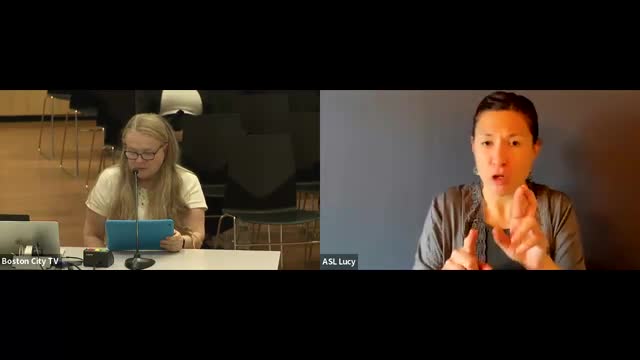Boston Schools Face Backlash Over Racial Equity Failures
July 18, 2024 | Boston Public Schools, School Boards, Massachusetts

This article was created by AI summarizing key points discussed. AI makes mistakes, so for full details and context, please refer to the video of the full meeting. Please report any errors so we can fix them. Report an error »

During a recent Boston Public Schools (BPS) meeting, significant concerns were raised regarding the equity of exam school admissions and the ongoing literacy gap affecting Black students. Parents and advocates expressed frustration over the exclusion of high-achieving students from educational opportunities, emphasizing that the current policies may be legal but are not equitable.
One parent highlighted the challenges faced by families during the pandemic, noting that the limited engagement opportunities for parents in the school committee's decision-making process hinder meaningful dialogue about the inequities in the exam school policy. They called for more substantial involvement from parents to ensure that the interests of all eligible students are represented.
The meeting also addressed alarming statistics regarding literacy among Black students. A speaker pointed out that the reading gap between Black and White fourth graders in BPS had nearly doubled, with recent MCAS data indicating no growth in literacy for Black students. This lack of progress was attributed to a curriculum that has failed to address the needs of early childhood education, perpetuating cycles of disadvantage that can lead to joblessness and mental health issues in adulthood.
Criticism was directed at Superintendent Skipper for perceived failures in addressing racial equity within the school system. Concerns were raised about the renaming of schools and the modification of exam school admissions policies, which some believe prioritize the comfort of White students over the needs of Black students. Advocates called for accountability and the establishment of a robust racial equity framework to ensure that all students receive equitable educational opportunities.
The meeting underscored the urgent need for BPS to confront longstanding disparities and to engage more effectively with the community to foster an inclusive educational environment.
One parent highlighted the challenges faced by families during the pandemic, noting that the limited engagement opportunities for parents in the school committee's decision-making process hinder meaningful dialogue about the inequities in the exam school policy. They called for more substantial involvement from parents to ensure that the interests of all eligible students are represented.
The meeting also addressed alarming statistics regarding literacy among Black students. A speaker pointed out that the reading gap between Black and White fourth graders in BPS had nearly doubled, with recent MCAS data indicating no growth in literacy for Black students. This lack of progress was attributed to a curriculum that has failed to address the needs of early childhood education, perpetuating cycles of disadvantage that can lead to joblessness and mental health issues in adulthood.
Criticism was directed at Superintendent Skipper for perceived failures in addressing racial equity within the school system. Concerns were raised about the renaming of schools and the modification of exam school admissions policies, which some believe prioritize the comfort of White students over the needs of Black students. Advocates called for accountability and the establishment of a robust racial equity framework to ensure that all students receive equitable educational opportunities.
The meeting underscored the urgent need for BPS to confront longstanding disparities and to engage more effectively with the community to foster an inclusive educational environment.
View full meeting
This article is based on a recent meeting—watch the full video and explore the complete transcript for deeper insights into the discussion.
View full meeting
